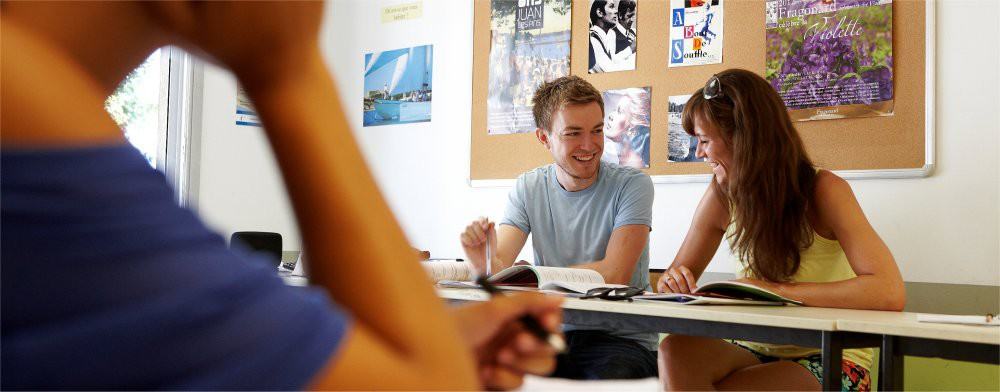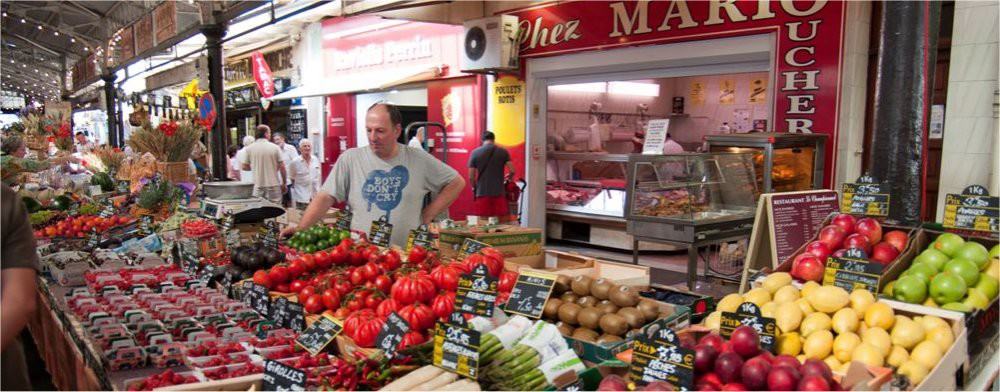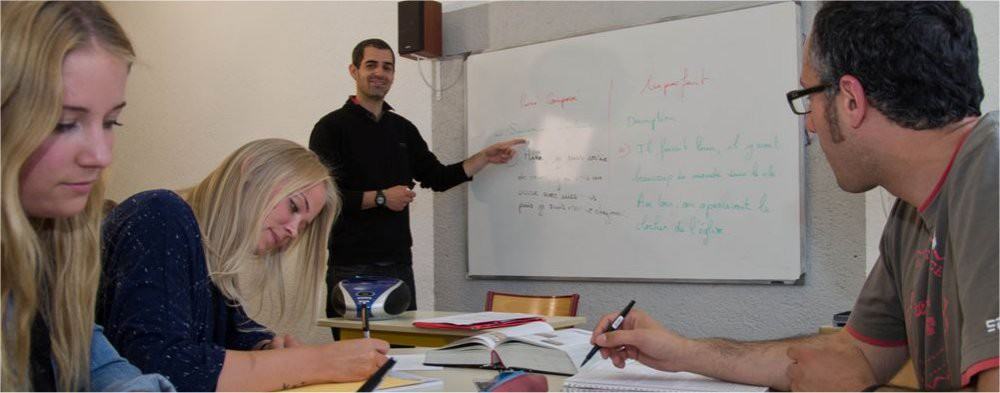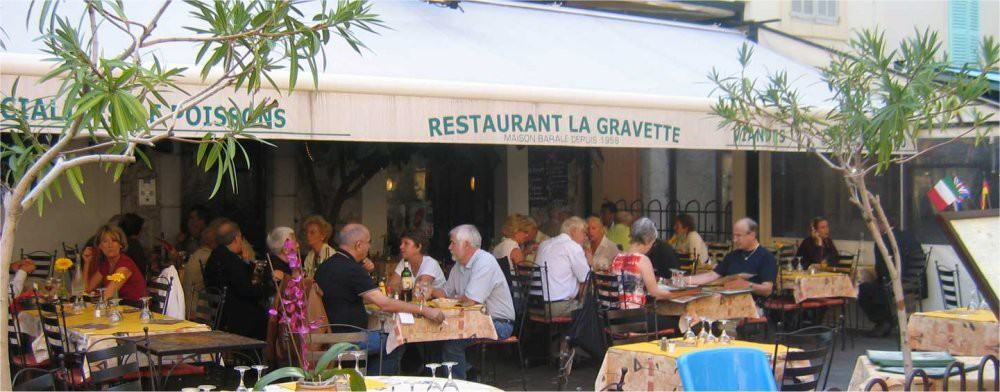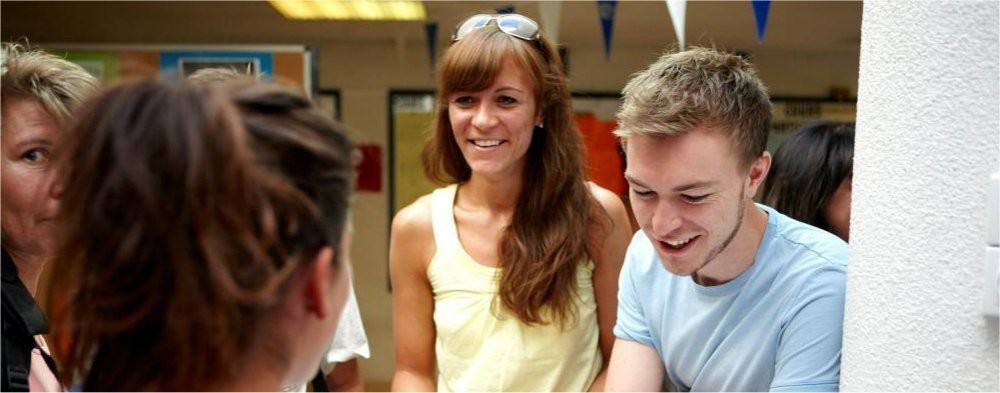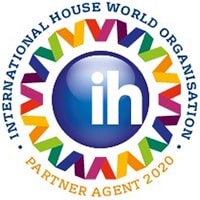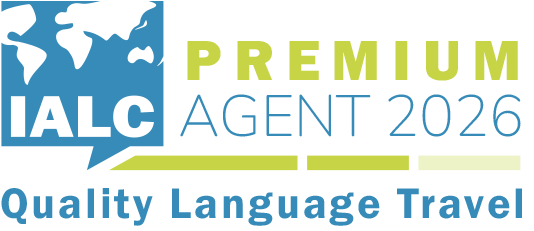Learn French in Antibes: Teaching
Quality French tuition
The professional and friendly team are here to help you from your first day and will support you so that you can learn French to the best of your abilities. You will be surrounded by experienced teachers specialising in the teaching of French as a foreign language (FLE) and with all the necessary qualifications to guarantee high quality teaching. They will help you improve your oral and written communication skills and introduce you to French culture and civilisation with their lively teaching. The French school’s teachers know how to create a welcoming atmosphere in which you can learn French at your own rhythm in friendly and rewarding surroundings.
Of course you will cover the four core skills of speaking, listening, reading and writing, with plenty of grammar and vocabulary work included in order to develop all the essential French language skills. The curriculum is structured on seven theoretical language levels. There are classes in grammar, oral and written exercises, practice with video and audio material and conversation on subjects of general, social and cultural interest and everything is always taught in French.
Methodology
The methodology is the result of years of experience in the intensive teaching of French. Special importance is given to the communicative aspect of the language and its use in everyday life. For this reason, the college encourages students to speak French in class, and whenever possible out of class as well.
CECR: Common European Framework of Reference
for Languages of the Council of Europe
| Beginners | A0 | students with no knowledge of French |
| allow 6 to 8 weeks to complete A1 level | ||
| False beginners | A1 | students with almost no knowledge of French |
| allow 6 weeks to complete A1 level | ||
| Elementary | A1/A2 | students with little knowledge of French |
| allow 6 to 8 weeks to complete A2 level | ||
| Intermediate | B1 | students with good foundations in French |
| allow 8 weeks to complete B1 level | ||
| Operational | B2 | students with a good knowledge of French |
| allow 10 weeks to complete B2 level | ||
| Advanced | C1 | students with an excellent knowledge of French |
| allow 10 weeks to complete C1 level | ||
A student of average linguistic ability should progress as outlined in the table above.
Actual progress depends on the time available, student aptitude and motivation.
Beginners: Basic French knowledge
Elementary: Simple grammatical structured knowledge to be able to communicate in the practical situations of daily life plus an introduction to French customs
Intermediate: Emphasis on grammar with reference to the past tenses and development of conversation skills
Intermediate 2: Focus on more complex skills, including the subjunctive.
Operational: Deepen grammatical skills, providing fluency in conversation and a deeper knowledge of French culture, also written expression and the creation of texts.
Advanced: Specialised level of grammar and more cultural French studies.
In reality students chose to attend a short course or a longer “Languages for Life” programme according to their linguistic goals, personal wishes and time constraints.
Course completion
You will be issued with a “French Certificate” certifying that you have completed the language training course. This certificate takes into account the level you have achieved at the end of the course, class attendance (as a percentage) and your teachers’ report
Teaching support
Small groups help the teachers develop a personalized lesson plan and to support every student no matter how long their course. Every 4 weeks the teachers will give you an overall evaluation, this includes advice to help you take stock of your progress to date and learning goals for the future. For students taking the DELF , a mock exam is taken at various points during a longer term course, to pin point your personal needs. The teaching staff will also evaluate the course by asking students to complete a satisfaction questionnaire based on all areas of their stay (lessons, accommodation, meals, activities and social program, support…).. Depending on the chosen course and your written and oral level, the teachers can combine all these elements to create a structured, varied and interesting course which will help you improve your understanding and your ability to express yourself in French.
All the teachers at the French school have a university degree. They were chosen for their qualifications, their experience and their human qualities. Both their passion for teaching and their communication skills make them excellent teachers. The French school’s educational department and teachers are often invited to teaching seminars abroad by French cultural bodies, local education institutions and by French teachers’ associations.
DELF Exam Preparation
The French school also has a close relationship with the linguistic and cultural network of the French Ministry of Foreign Affairs which promotes ways of learning French.
DELF is a language exam officially authorised by the French Ministry of National Education.
Full title: Diplôme d’Études en Langue Française (Diploma in French Studies).
The DELF certificate is made up of separate exams in accordance with the language levels set out in the Common European Framework
Level A1, Level A2, Level B1, Level B2
Your skills in 4 key language areas are evaluated in order to pass the DELF exam:
Oral comprehension – Written comprehension – Written expression – Oral expression
The DELF was created in 1985 by the French Ministry of National Education.
It is only offered to foreigners wishing to certify their language level in French.
It is an official certificate with the same rules nationwide which could be compared to the French Baccalauréat.
DELF certifies the French skills of foreign students. It is made up of 6 separate certificates, corresponding to the six levels of Common European Framework of Reference for Languages.
The student, depending on his/her level, can register for the exam of his/her choice immediately.
CECR: Common European Framework of Reference for Languages of the Council of Europe.
Beginners: students with no knowledge of French
False beginners (level A1-): students with almost no knowledge of French
Elementary (levels A1 and A2): students with little knowledge of French
Intermediate (level B1): students with good foundations in French
Operational & advanced (B2, C1, C2): students with a good or excellent knowledge of French
Delf registration fees
Registration fees (these set by the board of education) must be paid on arrival in Antibes, not via CESA, (prices are subject to amendments by the board of education).
Class size and timetable *
Standard DELF Course:
- 20 lessons x 45 mn/week
- Duration: 8, 12 or 16 weeks
- Morning 9:00 am to 12:20 noon – 12 students max. / Monday-Friday
Intensive DELF Course:
- 30 lessons x 45 mn/week
- Duration: 4, 6, 8, 12 or 16 weeks
- Morning 9:00 am to 12:20 noon – 12 students max. / Monday-Friday
- Afternoon 2:00 pm to 4:00 pm – 6 students max. / Tuesday-Friday
- Smaller groups for personalised support in the afternoon and mock exams every 3 weeks and before the official DELF exams
* Please note:
No lessons on the first Monday of your stay. Informative meeting and town tour in morning.
Written and oral French test at 2:00 pm. You will then be sorted into groups according to your level.
No lessons on national holidays. 20 minute break in the morning.
Depending on your level on arrival, the duration of your course, the exam dates and the level achieved by the end of the course, you can choose between the A2-B1-B2 DELF exams at the Antibes French language school.
Within the framework of your 8, 12 or 16 week course, the school offers a range of training course possibilities:
Important information:
The exams may last three days and take place during the last week of your stay.
There are no lessons during the last week.
Teaching hours include the training course and post exam correction if necessary. Pass certificates can either be collected from the exam centre on the same day as the exams taking place or sent to your home country via the embassy.
French School equipment
The school is equipped with televisions, video recorders, cassette players and video cameras. The school’s computer room and two rooms are equipped with computers (around 30 altogether). This will help you improve your knowledge of the language and of French culture through the use of new communication and information technology. There are several hundred documents in our multi-media library. You can also use our library.
Teaching materials used in Antibes, are specifically adapted to the teaching of French as a foreign language. The grammar guide given to each student has been specially designed by the Education Board. Most of the teaching materials are from authentic documents taken from everyday or professional life such as; newspaper articles, video and audio-visual materials, adverts, images, photos, paintings from different movements, cartoons, film and novel extracts, music videos and recent French songs. Teaching activities may also involve studying French internet sites.
On-site: Students at the Chateau school benefit from a library and wireless Internet facility. The Port school also offers a mini Internet area.
First Day
The first morning is dedicated to welcoming all new students, presenting the school and an information meeting, when you will be issued with all the information you need for your stay. You will also meet the school staff before heading off to visit Antibes.
The initial meeting is set at 8:30 am and is held at the Chateau school.
On the first Monday of the course students will meet at 9.15 am in the reception area at the school. The school will organize a welcome meeting and a tour of Antibes to introduce you to the school and town. At 2.00 pm you’ll take a written and oral test so that the school staff can assess your level and assign you to a suitable class. Your class, room number and teacher’s name will be posted the following morning on the information board in the school hall.
Timetable
Standard Course
First Monday of school:
There will be no lessons on the first Monday of your stay. In the morning you’ll have a briefing meeting and guided tour of the town. At the beginning of the afternoon you’ll take an oral and written French test so that you can be assigned to a class that suits your level.
First week / Tuesday to Friday:
09.00 to 12.20 hrs (includes 20 mins break)
Following weeks / Monday to Friday:
09.00 to 12.20 hrs (includes 20 mins break)
Intensive Group course
First week / Tuesday to Friday:
09.00 to 12.20 hrs (includes 20 mins break)
& 14.00 to 16.00 hrs
Following weeks / Monday to Friday:
09.00 to 12.20 hrs (includes 20 mins break)
Tuesday to Friday: + 14.00 to 16.00 hrs
Intensive Plus Group course
First week / Tuesday to Friday:
09.00 to 12.20 hrs (includes 20 mins break)
& 14.00 to 16.00 hrs + 16.10 to 17.10 hrs
Following weeks / Monday to Friday:
09.00 to 12.20 hrs (includes 20 mins break)
Tuesday to Friday: + 14.00 to 16.00 + 16.10 to 17.10 hrs
Private tuition:
Monday to Friday:
Generally afternoon tuition is provided, unless pre-arranged as morning classes.
Please discuss with CESA if morning classes are preferred.
Public Holidays
There are no group lessons on French public holidays Private lessons are reassigned to other days.
Meals
A self-service restaurant is available at the Chateau school from Monday to Friday (approximate costs: breakfast 87€, lunch 6€ to 14€). Snack and beverage vending machines are also available on site. Students at “Le Port” may prefer lunch at one of the many restaurants and snack bars on Boulevard d’Aguillon or in the old town. Vending machines are also available on site for breaks. You can enjoy dining out in the evening at one of the town’s many friendly-priced or more luxurious restaurants.
NB: No lessons are held on national holidays (See Course Finder for details)
1 lesson = 45 minutes
20 minute break in the morning class schedule
Antibes School Teachers
All the teachers at the French school have a university degree. They were chosen for their qualifications, their experience and their human qualities. Both their passion for teaching and their communication skills make them excellent teachers. The French school’s educational department and teachers are often invited to teaching seminars abroad by French cultural bodies, local education institutions and by French teachers’ associations.
Antibes Students
Students come from a wide range of nationalities, predominantly mainland Europeans (German, Swiss, Dutch, Italian and Spanish students). In addition student come from across the globe. Predominantly students are in their 20s and 30s, but there are also older students (particularly on the Over 50s courses).
